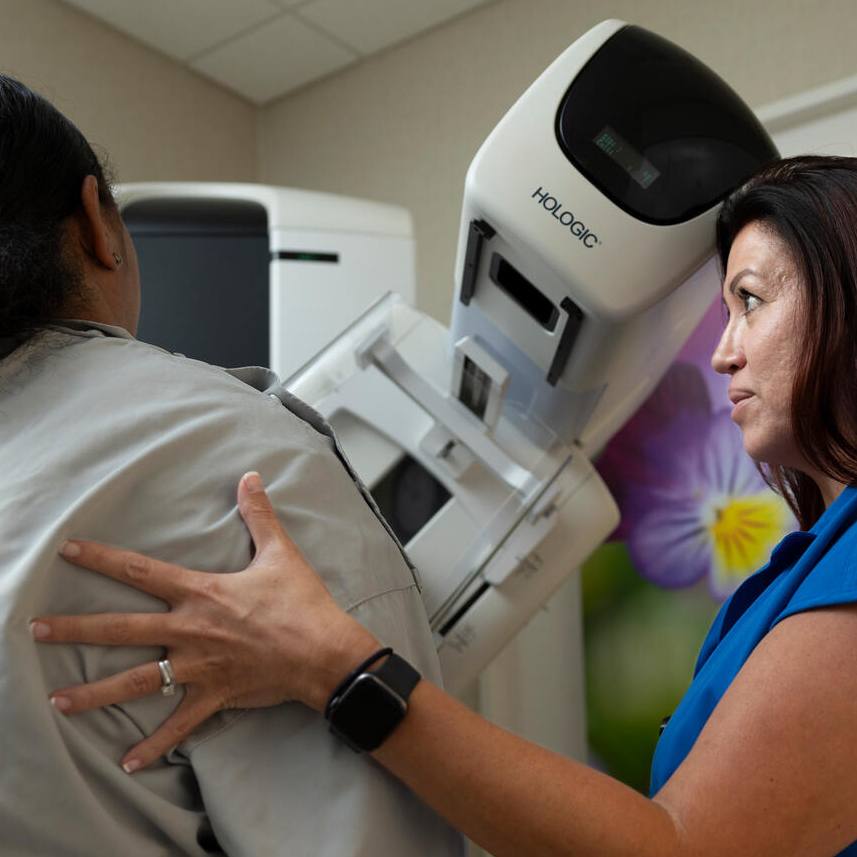-
Cancer
Data From Worldwide Trial of Two HER2-Positive Breast Cancer Drugs Shows That Trastuzumab Should Remain as Standard of Care
JACKSONVILLE, Fla., Sept. 29, 2014 — Analysis of more than 8,000 women who participated in the world’s largest study of two treatments for HER2-positive breast cancer reinforces other findings from the clinical trial showing that trastuzumab (Herceptin) should remain the standard of care for this cancer, says a Mayo Clinic researcher.
http://youtu.be/BcFszcq4CJo
This study, being presented at the European Society for Medical Oncology (ESMO) 2014 Congress in Madrid, reveals that when used as a single HER2-targeted therapy in addition to standard chemotherapy, trastuzumab offers a better outcome than does lapatinib (Tykerb), says Edith A. Perez, M.D., deputy director at large, Mayo Clinic Cancer Center and director of the Breast Cancer Translational Genomics Program at Mayo Clinic in Florida.
Dr. Perez is co-chair of ALTTO (Adjuvant Lapatinib and/or Trastuzumab Treatment Optimization study). The phase III clinical trial, which tested combinations of the two drugs or use of the drugs by themselves — in addition to standard chemotherapy — enrolled 8,381 participants at 946 medical centers in 44 countries.
A key finding from ALTTO, released in June, showed that lapatinib, when used in addition to trastuzumab as part of dual therapy, did not offer any statistically significant benefit to patients, such as disease-free survival or overall survival. Dual blockade using two anti-HER2 drugs only increased toxicity, said Dr. Perez.
This new analysis compared use of lapatinib or trastuzumab alone, as well as outcome in disease-free patients who were offered trastuzumab as adjuvant treatment after being treated with lapatinib alone.
The researchers found that trastuzumab offered a better outcome compared to use of lapatinib alone. After 4.5 years of follow-up, 14 percent of patients using trastuzumab experienced at least one disease event, compared to 18 percent of patients using lapatinib. A disease event is defined as breast cancer recurrence anywhere in the body, a new cancer, or death of any cause.
However, cardiac safety was good in both groups, and there was no difference in the rate of development of brain metastasis, says Dr. Perez.
The researchers also showed that switching from lapatinib to trastuzumab offered a benefit to patients. Of the 2,100 patients in the lapatinib arm, 52 percent received at least one dose of trastuzumab.
“We were glad that we received early notice in August 2011 of the potential lower benefit of lapatinib versus trastuzumab, which led us to offer trastuzumab for the patients who had been assigned to lapatinib alone. This intervention speaks well to our flexibility in the conduct of clinical trials,” says Dr. Perez.
“ALTTO was and is a very important global trial. All patients were carefully managed and we demonstrated better overall outcomes than anticipated,” she says. “We demonstrated that lapatinib’s activity appeared to be lower than that of trastuzumab in the adjuvant setting, that there was a trend for additional benefit if those patients were switched to trastuzumab, that cardiac safety was better than predicted, and that the number of brain metastases appeared similar for the patients who received either lapatinib or trastuzumab.”
Dr. Perez adds that patients are still being followed, and the research team is investigating tumor and blood specimens to discover and analyze potential biomarkers for treatment efficacy.
The study was funded by The Breast Cancer Intergroup of North America (TBCI), based in the United States, the Breast International Group (BIG) in Brussels, Belgium, the National Cancer Institute and Glaxo SmithKline. TBCI consists of six NCI-funded clinical trials cooperative groups. NCI is part of the National Institutes of Health.
###
About Mayo Clinic
Recognizing 150 years of serving humanity in 2014, Mayo Clinic is a nonprofit worldwide leader in medical care, research and education for people from all walks of life. For more information, visit 150years.mayoclinic.org, MayoClinic.org or newsnetwork.mayoclinic.org.
About Mayo Clinic Cancer Center
As a leading institution funded by the National Cancer Institute, Mayo Clinic Cancer Center conducts basic, clinical and population science research, translating discoveries into improved methods for prevention, diagnosis, prognosis and therapy. For information on cancer clinical trials, call 507-538-7623.
MEDIA CONTACT: Paul Scotti, Mayo Clinic Public Affairs, 904-953-0199. Email: scotti.paul@mayo.edu







